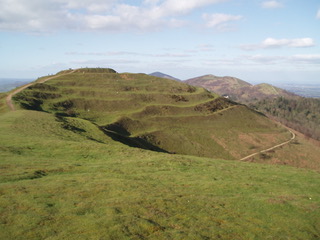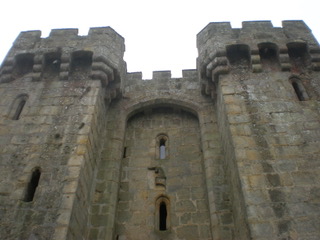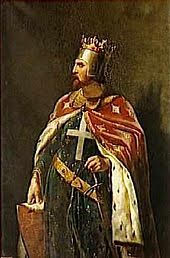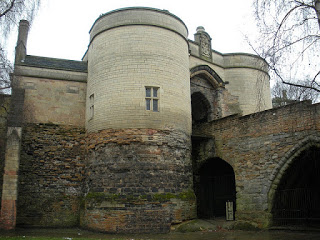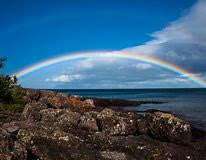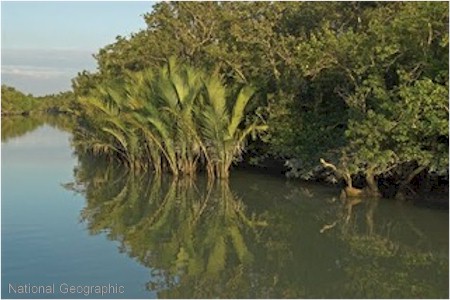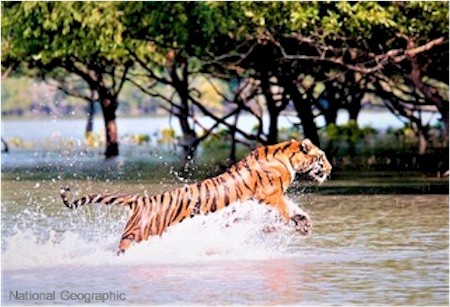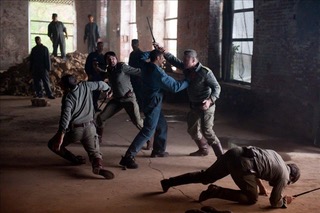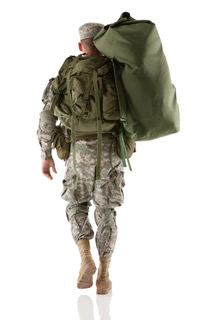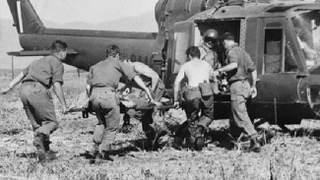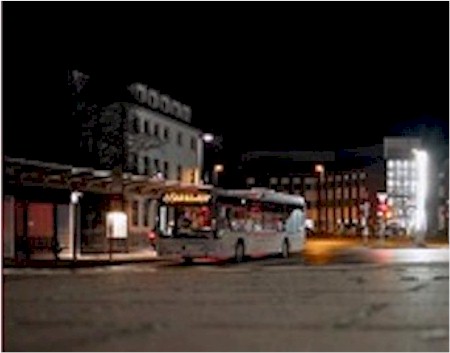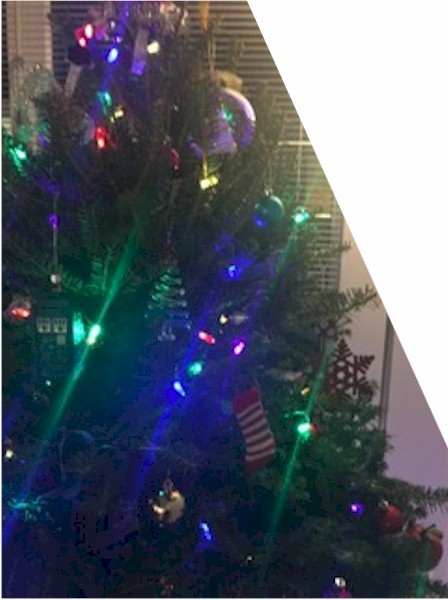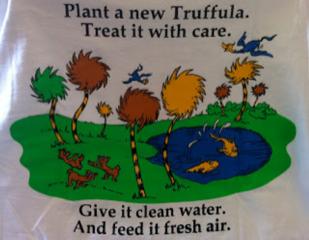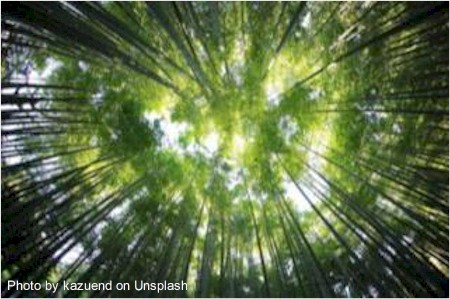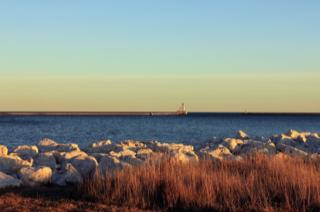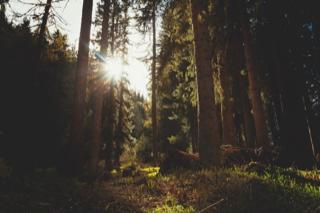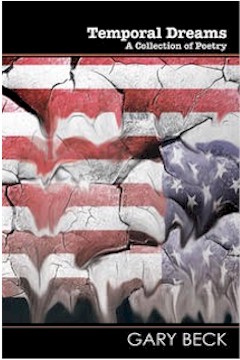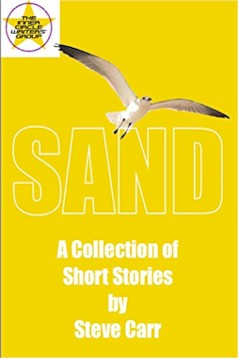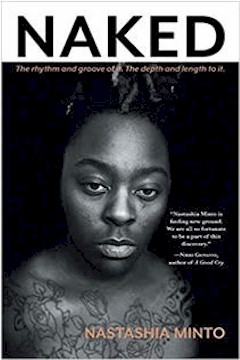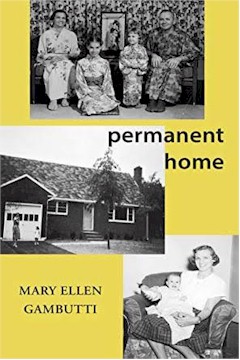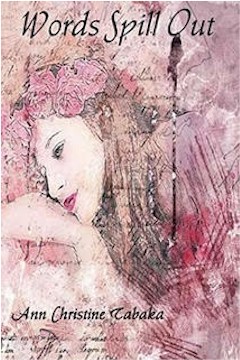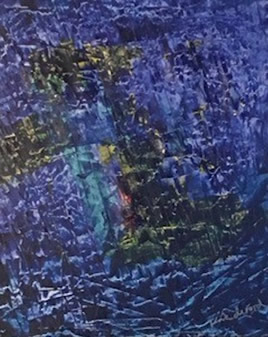Portland Metrozine |
| Walking Through Rainbows |
|
By Richard Prime |
| Case Studies |
By Beth Cartino |
| Thistles n' Mistletoes |
By Mehreen Ahmed |
| Suite of Five Poems |
By Ann Christine Tabaka |
| Gallery Walk |
By Judith Skillman |
| What are you in for? |
By Prisoner # 53.3.8.5.7 |
| Trilogy of Coping |
By Cabot O’Callaghan |
| The Bus |
By Steve Carr |
| Lenses: 1 & Insofar |
By Benjamin Pierce |
| Slice of Life: Merry Christmas, Kids |
By Jamie Owens |
| Spotlight on: Climate Change |
From the Editor's Desk |
| Forest Dweller |
By Dawn Tyree |
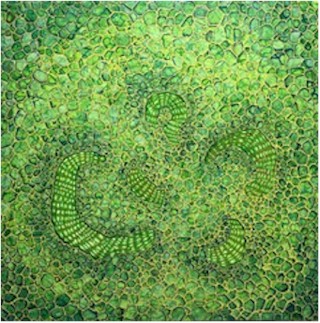
Stem by Marta Kalinsk
|
|
| Fiction / Fantasy / History |
Walking Through Rainbows By Richard Prime PrologueWhen deeply rooted in Nature, we call on the true Mother of us all for sustenance and peace. We were shunned by our culture. We faced discrimination and abuse. We were different. That is why nobody trusted us. They called us “creatures” - less than human beings. We were more than human, able to sense the world, to taste and feel the air about us. We could look into people and see the good in them, and the bad. We could feel their sadness and cry tears with them. We could offer hope. This my story. My name is John. I am a creature. . One: 1980 A.D.It began for me in 1980 when, one rainy Saturday, I was involved in a traffic accident. My injuries were many. I was taken to hospital and, in the operating theatre, my heart stopped, and I died. They revived me and when I came back, something came back with me. A sensitivity. I remember hallucinations. Soldiers filing at my bedside; strangers sitting by my bed without speaking. When I told the doctors and nurses of the hallucinations, they explained it was common and due to the drugs that I was being administered. I accepted their explanation: it was the drugs. The layout of the beds on the ward, the colours of the linen - these were like ripples to me. When touched by a nurse, it was as if a light appeared behind them, shining distinctly over their shoulder, casting them into silhouette. I could see inside their heart, the goodness, the kindness. Information came to me, as if I saw images from their past. Their childhood, their graduation day. The happiness of those memories. Was I insane? How was it possible? If I mentioned this, the nurse smiled and she explained that it was the drugs. I had suffered a severe head injury and things might seem topsy-turvy for a while. Ok, it was the topsy-turviness of the drugs, I wasn’t insane after all. I could hear the voices of people around my bed: people who weren’t there, talking to each other in whispers. It was like listening to a radio that was not quite tuned to any frequency. Polyglots spoke to each other - in languages I could not understand. Gradually, I healed. I was walking again. I was discharged from hospital. Mum and Dad would watch me all the time. They would discuss me when I wasn’t in the room. It didn’t matter I could still hear them. “Maybe he’ll improve with time. We owe him that, he’s our son”. They would shy away when I spoke to them. That hurt. It wasn’t just my parents. Friends avoided me. If I went out, people would nudge each other and whisper. “He’s the one I told you about”. I was different from the person I had been. I heard whispers. If someone touched me, I’d see the flashy angel light and I’d see inside them - the good, the happiness. I didn’t deserve this “gift”. This dead weight that I carried around with me. Then the dreams began. Two: 45 A.D.The main rampart and external ditch ran parallel to the coast. The ridge had risen, and the cliffs were high. At one end of the hill, an incomplete series of ramparts curved back to the cliffs and an opposite rampart reached the cliffs on the side of the bay. This wasn’t the main structure of the fort. That stood half a day’s walk along the coast. Instead, we used it as an enclosed pasture for the animals. Beyond that, it was of no strategic value. We were farmers, breeding and raising livestock. Life had continued this way since earlier days were mists. We were also Dura warriors. Even the women. Children in our care were the future legacy. Ianna appeared at my side. Clutched at my arm. “Augustan horns are closing” she said urgently, “we must hurry!” I gave her a swift and admiring glance. Ianna, my wife, flaxen red hair, red lips, trinkets and charms adorned her clothes and hung braided in her hair and across her forehead. She was the healer. Like myself, a creature. She had special gifts; an ability to foretell events, to feel the joys and miseries of others. I had these abilities too, but to a lesser extent. My role was to protect the tribe and to kill Romans. Vespasian’s second Augustan legion had repeatedly charged the fortress, decimating the tribe. The situation was worse than poor; so dire that creatures controlled the tribe. This is how bad things were for us. I barked commands and animals were led into carts. From the peak of the hill I could see carts wending their way across the heath towards Corf Molin further inland. Some hoped the legion would feast on the animals, then leave us alone. Ianna and I knew all hope was lost. We had to return to the defensive fort.
We could hear the thunder of Roman feet across the heath. The sound of horns. I turned to Ianna and said, “Let the flame rekindle between us.” Ianna nodded, then she and other women took the hands of the children and led them away through the fortress. Our aim was to hold the legion back. To engage them, giving the women and children time to scramble down the cliff path and escape across the beach. They were the only Dura hope. I and the rest of the men would die that day. Romans were armed with metal swords, helmets and shields. We had nothing but sharpened sticks, agility, guile and the generosity of our Gods. A horn sounded, and Romans began their advance. I cried out commands and began running down the hill into battle. The last thing I saw was blood in my eyes, red like Ianna’s hair. I tried to call her name, but the darkness took me. Three: 2018 A.D.Enjoying my lunch in the Barista’s café, Port Talbot, I watched as an old man who’d been sitting at the next table picked up his cup and moved to sit opposite me at mine. He offered his hand for me to shake, which I did. In that moment, I saw the angel light. Like a dream, I could see him in a bearskin, wielding an axe. I saw him in a Norman Hauberk, storming the Housecarl shield wall. I saw him in the shadow of a majestic castle, his expression torn with pain at the arrow buried in his chest. I saw him burning alive at the stake. The images desisted. “Ieuan”, the old man said in his lilting West Glamorgan accent. “Like you, I am John. Like you, I am a creature”. “How did you know?” I asked, my words stumbling out. “I saw the loneliness in your eyes. We live in isolation” “We?” “You and I, and the others” “Are there many?” Ieuan shook his head sadly “Not anymore, we are few”. Silence for a few moments, as we both consulted our thoughts. Then Ieuan said “I’ve seen everything. You know I have. She is waiting for you” “Ianna?” Suddenly my spirits lifted. I had lived too many lives. Each time searching for her. There had been women, but none were my Ianna. “Or whatever name she uses now,” Ieuan persisted. “Do you know where she is?” I asked. I could almost feel her slipping away. “It’s the connection” Ieuan explained. “That first touch. I shook your hand, now I know your thoughts, as you know mine” I nodded “Yes” I said. I knew he wasn’t lying to me. “I realise how difficult it is for you to touch, but touch many. Their thoughts may lead you to her” I drained my coffee, “Thanks” I said, shaking Ieuan’s hand again. There was no light this time. It happens only on the first touch, when I make the connection. Then I asked, “How did it start for you?” Ieuan gave a shrug of nonchalance, “I was but a child. Fell in a river and drowned. Someone fished me out and revived me” “It came back with you?” “Oh, yes”, he said “It always begins with trauma” “But not for everyone. Why not?” “For most, this has been conditioned out of them. Ignore the figures in the shadows, the faces at the window. But for us, it is stronger” “I understand” I said. I had seen the shadows the faces. I had heard the whispering and saw the ripple in colours. I knew exactly what he meant. “Now, go touch people” Ieuan said. “Find her, and don’t get arrested.” Four: 1194 A.D.Nottingham castle’s garrison and constables were in disarray. An army had camped beyond the city walls and it expected to lay siege. The army’s commander had taken lodgings close to the castle where he could easily be seen. Our liege Lord Count John of Mortain and, soon to be crowned king following King Richard’s incarceration and subsequent demise at Runstein, had sent word that we must defend his castle against whichever traitorous baron was besieging and pretending to be king. Almost immediately, archers of the castle had shot the commander’s men before his feet. It was not Richard besieging us. Of that everyone was certain. Immediately an assault was made on the Castle. There was a great conflict, and many on either side were wounded and killed. The army’s commander was seen to kill a knight with an arrow. Thus, prevailing and having forced us back into the castle, certain preparations were made before the gates and the outer gates were burned. On the taking of the gates and the outer enclosure, the besieging army brought with them strong, thick and broad shields. Many men carried these in front until they came up to the gateway. When the commander arrived with them, all those who were with him and who loved him the most, wanting to fulfil his purpose, raced to arm themselves. They advanced boldly until they took the first bailey. The traitorous barons entered the bailey and brought shields with them, with which they protected themselves extremely well so that the crossbowmen could not hurt them. In front of the commander, crossbowmen began to shoot, to do the best they could and held their task until they took the barbican. There were many injured and wounded amongst those of us from the castle, which greatly pleased those outside. They did extremely well in this attack, but they withdrew at nightfall and, when the assailants had all withdrawn, those of us inside, under the cover of darkness, set fire to the gate and burned and destroyed by fire the final barbican. Thus, at the end of the first day, besiegers had gained entrance into the first bailey and were in possession of it. We were penned in the rest of the castle. Then ordered to stand firm - as the besieging army now had a real problem as they were confronted by the stone walls of the middle and upper baileys which stood on higher ground than the first bailey. On the second day of the siege, the besieging army caused to be made their war machines, their siege engines. These petraries and mangonels were constructed upon the higher ground, on the north overlooking the castle from where they could directly fire into the inner bailey. Whilst these devastating war machines were assembled and positioned, we, the besieged, were intimidated by the construction outside the now derelict gate of gallows, upon which were hung several captured sergeants of Count John. Then the bombardment began. The walls of the inner bailey were destroyed, and many more men were killed, but not I. For though I had blooded my sword during the first assault at the gate, I had by then been commanded to fall back to within the defensive walls of the motte, the keep, where I and other knights were to protect the castle’s constables, Ralph Murdac and William de Wenneval, should besiegers break into the inner bailey.
Murdac ordered that I visit the besieging commander’s lodging to ascertain his identity. I walked through the inner and outer baileys without my sword or iron hat, offering myself as no threat to the enemy expecting that at any moment, I would be stuck by a lethal crossbow bolt. They allowed me to reach and enter the lodging. The commander sat in his chair dressed in a suit of light chain mail. He wore his iron hat and, above that, his crown. I recognised him immediately. I had fought with King Richard at Acre and had watched as thousands of Saladin’s captured people were slain. I looked at him closely and knew him from his bearing and from his face. The man before me was unmistakeably King Richard. “Am I him?” asked the King “What do you think?” I said “Yes” then I fell to my knees and kissed the sovereign ring on his finger, offering myself to his benign mercy. “Who are you?” the King asked I told him truthfully “Sir Fouchier de Grendon, my Lord” “You may go back freely”, he said, “That is right, do the best that you can” Five: 2018 A.D.I had been touching people a lot. Pushing by them, my arm would brush theirs and there’d be a connection made. A lot of thoughts were bouncing about in the ether, or whatever it is; shopping lists, car is going in for a service on Wednesday, kids need new school uniforms. Meandering thoughts of those who wandered through the malls or walking home or nowhere in particular. There was the angel light, too. I’d seen them. Goodness, kindness. It has helped me reappraise my view of people in general. So much love. It was then I encountered Graham Bryce. I brushed against him as he past. The angel light flashed, and I saw Ianna. She was standing barefoot on wet grass and before her hung the unmistakeable arc of a rainbow. Images swam behind my eyes. Her name was Anne. Bryce was her brother. Once a connection with someone has been made, I see it all. She was chasing rainbows in Saskatchewan, Western Canada. I knew, finally, where I had to go. Six: 1485 A.D. We were separated into three groups, or what we called battles; van, vanguard and rear guard. John Howard, the Duke of Norfolk, commanded the vanguard, William Stanley, the Earl of Northumberland was commander of the rear-guard. I stood among the King’s infantry of the van, dressed in my poor man’s armour of breast plate, gauntlets and cabasset protecting my skull. I carried no sword but a misericord at my belt; a dagger for close quarter fighting. I was armed with a halberd; a two-handed pole with an axe blade and hook and a metal spike. I fought with the Yorkist army at Towton, Wakefield and Stoke. Nobody truly believed in the cause we fought for. It was a disagreement between cousins and Henry Tudor had no real claim to the crown, being of Margaret Beaufort’s bastard line of Lancaster. The King, although fighting for his crown, was more intent on teaching Tudor manners; killing a holy anointed King was not a good deed as Bolynbroke had discovered when he died in shame and abandoned by God following his murder of Richard II. Tudor was a coward, sitting upon his horse to the rear of his forces and circled by his bodyguards. The Lancastrians kept most of their force together, placing them under the command of the battle-hardened Earl of Oxford. Clarions sounded from beyond the marsh and Oxford’s infantrymen advanced. Unwilling to have us bogged down in the mud, the king held us back. When Oxford’s men had cleared the marsh, horns sounded and Norfolk took his battle forward, engaging the pike men who forced them back. Horns sounded again, urging Northumberland to advance to Norfolk’s aid. Urgent whispers spread amongst our ranks. The king had sent message to Northumberland commanding him to engage, threatening to execute his son if he did not. The whisperers told of Northumberland’s reply; that he had other sons. I felt my heart sinking. William Stanley, the Duke of Northumberland, was the husband of Margaret Beaufort. The mother of Henry Tudor. This day would not be good for us. Numbers of Norfolk’s battle then fled the field. Sensing an impending victory, groups broke away from Oxford’s army and pursued them and, in doing so, left Henry Tudor’s position exposed. The king must have seen this, for the horns sounded again and he charged his horse forward flanked by his lieutenants. We, the infantry, spurred ahead, engaging Oxford’s men before and in the marsh. I saw Norfolk being dragged from his horse. Not the easiest way to die. The enemy would force open his visor and cut out his eyes. They would geld him and leave him dying in agony, his privates in his mouth. If he was lucky, someone would lift his head and drive their misericord into his neck forcing it up into his brain. I’d done that many times myself, despatching the wounded at Towton and Wakefield. I swung my halberd, chopping and cutting. I caught a mounted man with the hook and dragged him from his horse, chopping him as he writhed below me; but I lost my weapon. Taking my misericord from my belt, I began slashing and stabbing but felt a huge blow to my head drive the senses from me. It was then that Northumberland engaged the enemy. Us. In that final moment I saw the king toppled from his horse and standing in the muddy waters, crying above the din of the battle “Treason! Treason!” Then an axe struck the king on his head and he went down. I tasted blood in my mouth and the darkness took me. Seven: 2018 A.D.I booked my flight, London Heathrow to Minneapolis, four and a half hours layover, then my connecting flight to Saskatoon. Is that Saskatchewan? Okay, so I could get there, but as for finding Ianna, I was no better off. What do I do, arrive at Saskatoon, ask a cab driver to take me to a rainbow? I had no memory or knowledge of these places. I’d have to freewheel. That’s all there was to it. Eight: 1644 A.D. At Marston Moor, we were routed by Cromwell’s roundheads. Our infantry was annihilated. I was one of the lucky ones, escaping from the field. I ran for days, finally finding myself at the river Nidd. I used the river for cover. Clinging to a floating wooden log, I allowed the current to take me. I thought I might escape, but on my second day in the river I was dragged from my wooden saviour and taken to Knaresborough castle, where I was chained to the wall of the dungeon. There were other men shackled to the walls; each of them ravaged by hunger and stricken by fear. For in the morning, when the sun rose and cast a square of light from the only window, a light that illuminated the wooden block, the man at the head of the chain was unshackled from the wall, literally dragged to the block and decapitated. We knew what end awaited us. Men would urinate and defecate where they stood. The nights were full of cries and wails; I did not deserve to die like this. I was but a poor farmer. My only crime had been to join an army. Parliament or Royal, neither mattered to me. A few pennies more was all the difference, and now, facing my end, I wished I was tending my strip of land or milking the cow. I wished I was being held by my wife, but that life was behind me and ahead of me was certain death. I was moved to the head of the chain. Hanging from my shackles, everything ached; my arms, my shoulders and my neck. My legs lacked the strength to lift me against my chains. In the morning, I was taken from my chains and dragged to the block. “Let it be over” I thought. They pushed my head down abruptly. From the corner of my vision, I watched the axe rise, then the darkness took me. Nine: 2018 A.D.Arriving in Saskatchewan after what felt like an eternity, I asked a cab driver if he knew where the rainbow was. I felt stupid asking, expecting him to demand that I get the hell out of his cab, but instead he turned to me. “Rainbow’s End?” he asked. Relaxing, I said “That’ll be it!” The further we travelled, the stronger Ianna’s presence felt. It was like a warmth inside me. The cab stopped at a stretch of grassy parkland. “Rainbow’s End” the cab driver announced.
“Remove your shoes and socks” she said. I hopped awkwardly, removing socks and shoes. The grass was cold and wet and sent a shock through my body. Ianna took my hand and said “Look” I followed her gaze; the rainbow was there; just like the grass, it flashed like a million stars. Ianna stepped into the rainbow, I followed her. Inside it was not cold and wet, but warm and there was a hum like from a cello string beneath the bow. We left the rainbow. Ianna was soaked, her hair was wet as was her gown. I looked down and saw that I too was wet. Ianna said “Come.” I followed her again into the rainbow but this time there was no hum, instead, it was like all the love in the world was pooled inside the rainbow. Beyond the rainbow, Ianna turned to me. “You found me.” “Did you think I wouldn’t?” “No” she replied, “I knew that one day you would”. “We need dry clothes” she said “Replace your socks and shoes” My socks were soaking wet. I placed them in my pocket and put only my shoes on. Ianna laughed “I have dry clothes for you.” “Because you were expecting me, right?” Ianna kissed me, then she took my hand and led me to her apartment. We had a lot of catching up to do. We are Ann and John. We are humans. |
|
|
| Poetry |
Case Studies By Beth Cartino A Seed In Winter Comes Alive By Beth Cartino A seed in winter comes alive beneath the ice hardened soil The seed says mend, and this is new. She has always hated her fragility and the way she breaks, Before white butterfly turned summer into Her legs, thick as sapling tree trunks, all akimbo Give her hot cocoa, warm fuzzy blankets, and pillows to build her battlements. Forgive her twelve-year-old heart its naïve love. The seed says mend, and this is new. Formulating the Argument for Hope By Beth Cartino I live in the silences between words, in the space where the air crackles between what is spoken and what is left unsaid. His chin quakes as the memories fall broken from his split lip, the scar a gift from his drunken father. We are covering old ground, he and I. “I just wanted to die. They put something in the meth. It was poison.” He says. I want to tell him it’s all poison. There is no such thing as certified organic, single source, fair trade methamphetamine. “You are more powerful than Satan,” he tells me. “I am safe here, with you. He can’t enter this room.” I want to tell him the room we are sitting in used to be the bathroom and possesses no magical properties to ward off demons. There are no sigils drawn in blood, no secret incantation whispered in a lost tongue. There is only me. There is only him. And the molecules between us in this room where people shat, and pissed and jacked off and showered. This is my fear. The thing that makes my insides writhe like serpents in a pit. His. Faith. In. Me. I. will. Fail. him. “My dad would beat me whenever I did something that wasn’t normal like writing poetry or acting goofy.” He says. The silence unravels before him as he remembers the feel of metal and leather connecting with fragile five-year-old boy meat. He rubs his hands endlessly across the stubble of his shaved head. The sound is a rasping whisper. The sound is soothing. His eyes rattle in their sockets. He will not cry. Cannot cry. I want to tell him I saw my therapist every week for seven years before I shed my first tear. I want to tell him how I told my therapist to fuck off every time I cried. “I’m not gay.” he tells me. “It’s ok if you are.” I say. “I just want to die. There is something not right about me and he knew it. My dad he knew. Sometimes I think my job description should read keeping people alive by sheer force of will. There are days it is difficult to formulate the argument for hope. |
|
|
| Creative Nonfiction Essay |
Thistles n' Mistletoes By Mehreen Ahmed Most of Sunderbans is in Khulna, Bangladesh. A small portion of it is situated in India. I am here with a friend and guide on the Bangladesh side. It is surrounded by salt tolerant waterways. The waterways are interconnected in a way that the forest is accessible through every corner. Infested with saltwater crocodiles, vicious snakes, and the Royal Bengal Tigers at large, this remarkable world heritage is nature’s boon to mankind. Our steamer is anchored, off the coast of the Bay of Bengal. A muggy summer’s noon, in the heightened midday sun, I decipher a skyline from the deck; a sentinel of dark mangroves, on the edge of the jagged land by the Bay. I feel a tremor. This magical forest in its own right, not because of the enigmatic wilderness, but something else, something more primeval. These world’s largest mangroves are also a habitat for both man and beast. By far, this overtly hostile environment is a home to the tribals of a thriving population, a chimera culture in this deep repository.
Long since, I have had a desire to visit the Sunderbans. This opportune moment, I can now venture inland. I want to find out more about such cultures, vulnerabilities and strengths, rendering them to be both fragile and resilient. A skeletal wooden dingy is moored to the steamer on murky waters. We, my friend and I, climb down balancing cautiously on the boat and sit in the middle. We clutch on to the boat’s side panels. Our perceptible edgy look does not distract the boatman. He rows us calmly down the placid canal. Our steamer is in the offing. We gravitate to the forest. It draws us in, the mangroves become more prominent. When the boat is closer to the land, the boatman jumps out of the dingy, and pulls it by the oar. He throws a noose around a mangrove roots and holds the bow in his brawny grip. Feeling anxious, we tiptoe out of the boat. The little boat swerves on the oar’s plash. I step forward onto the wetlands, I sense the breathing roots. The jungle sleeps. The closely bunched up mangroves, lean towards the waterways. Its entwined dark roots, snake in and out of an opaque belly of drenched sand on the shores. A image is conjured in my mind; that of the enchantress Manasa, in the forest of the night. She, a regal apparition on a dance date with her cobra companions, is reposed down a sinewy branch of close canopies, one of the distinguishing features of this forest. Unlike the African Savannah, the Sunderbans is known for its close canopies of palms, and sundari trees. Even on the brightest of warm mornings, only a small amount of sunlight is filtered through these canopy formations. However, not all trees are sundari. There are other kinds of treasure trees here as well, such as the karam tree. The word sundari in Bengali means pretty. Aptly named for such lofty trunks of long tresses, the silver wet mane, watered down in sliding rain. A walkabout under the canopies, reveals a veritable range of exotic creatures of the blue forest. While the Manasa is worshipped by the Hindus in Bangal. On this podium of odds, I fully appreciate the need to appease such a goddess. A lull descends in the atmosphere. My apprehensions get the better of me. The dark, menacing clouds have gathered in the distant sky. We cannot go back to the steamer, because the canal is turgid, far too dangerous to cross now. Besides, the streamer has been evacuated. My friend says that the crew have gone to shack in a clearing. Apparently, there are quite a few clearings. He suggests, we proceed toward the villages. He knows some fishermen there. Too eager, we approach a small village. I view a motley of small shacks behind a cobbled fence line. A tribal family in the loggia, the fisherman’s basket juts out of an open space of a high ground; the day’s floundering catch at sea. A woman sits on the floor, scaling and gutting fish on a boti knife on the far end. She and her little girl are fully dressed in a red sari. Her man and the boy in lungi, and white vests. Greetings follow an invitation for dinner. This imminent storm, unsure of what to do next, we accept with some hesitation, and sit down on a mat. In the slight lantern light, the fish is prepared and cooked on a firewood stove. The smoke rises. A combined flavor of soupy, spiced curry on parboiled steamy rice, disperses through the air of an overcast sky, and lightening crackles.
Indeed, Medusa and Manasa are analogous. The greater world of mythology, whether it is Greco-Roman or Indic, has venerated and immortalized them. Perhaps, they are even sisters who’s to know? While one has retired, the other is active. Among the Munda tribe, snake worship is practiced as a religious belief. Particularly, Manasa’s father, Lord Shiva is the much-revered deity, ingrained into the Munda culture. Shiva is statued in a mossy, ancient temple. Devotees take white jilledu and bilwa flowers to his altar to pray. Some devotees also serve water to snakes in the backyard of their home. A serpentine thirst to quench, a reptile to be tamed, not to goad, so both can die another day. This sacred bond of trust is a handmaiden to preservation and interdependence, in the hope to ensure less carnage and destruction. In hunt, the jungle’s chant, ‘to live and let live,’ not overkill for spoils, precludes the notion that killing is not a game, but kill out of necessity of hunger, is game. Just as well, Munda fishermen are intrepid honey gatherers. They set out to explore the deep forests beset with crocodiles, tigers and snakes on leaky boats in search of wild beehives. This pure honey is an economic lifeline, natural antibiotics, and an excellent source of energy. It is sourced out to the city. Their exceptional tracking sense, knowledge of the bush tucker, and sharp instincts guide them much of the way. Not everyone makes it, but those who do, don’t forget to perform the ritualistic Pujas in Shiv temples. Once the honey is home, both in person, as well as in fluid, it is squeezed out of its honeycombs into locally made clay jars. Sleek city-dwellers, businessmen, use the Munda as trackers for wild honey collection. It is a bittersweet battle for survival each moment. Humans in constant fear of being wedged out, as are other animals. Fending off alligators, vipers, stray tigers, and humans, all in a day’s work. Besides the human flesh, other animals also meet the tiger’s ravenous hunger, such as the spotted deer. The deer, and the gazelle often fall prey, gone in a flash, when they come in droves for an early morning drink to the ocean’s edge. Their guard is lowered and are snatched either by tigers or hunted down by humans for breakfast, lunch or dinner. Succulent deer meat is a human delicacy, after all. It is insane to think that humans can be insulated against feline fangs on this Tigerland. But stories that emerge are surely fantastic. This nerve center for both humans and beasts, the Sunderbans has been a sanctuary throughout ages, where bees self-organize to pack honey into combs; fish summersault out of the oceanic hideouts to jump into mudflats; crocodiles bask in the shallow waters; birds frolic under prolific canopies; tigers lounge in high grasslands; and indigenous people build brilliant bamboo fences along their dwellings. Within such forays of a feral culture, humans and beasts both know better, not to cross boundaries; or suffer a draconian reprisal of nefarious bloodbath.
Clearings beefed up with heavy buffers of bamboo fences, stuffed with burning torches into bamboo cavities, to discourage beasts. That maybe, but at its core, a bit of the Mowgli legend is played out here as well; if all the world’s a stage, then so be it. In all fairness, this nuanced drama of friendship in the animal kingdom has a much greater impact on the culture. An umbrella riddled with forest thistles, is also where earthlings fall in love, marry and find a full life. Werewolves serenade blood moons, under their chosen mistletoes. An intriguing culture which looks well integrated, pretty much. The only time the jungle becomes pear shaped is when invaders and poachers attack it. Killing, plundering, and raping it, as it were, conspiring to tarnish its pristine environment. The Bengal Tiger is an endangered species that urgently needs to be saved from annihilation. Systematic deforestation, for the installation of a power plant is another one of many ongoing issues at present. This is when, the jungle stops breathing; those are the real threats. |
|
|
| Poetry |
Suite of Five Poems By Ann Christine Tabaka Not of this World By Ann Christine Tabaka And, the crescent moon a cradle that wander beyond galaxies To dip my toes in stardust, while searching for the meaning of love And, I wake upon a shoreline where nightingales wake the morning, To be gathered all together never to be returned to For I am not of this world. Becoming Who We Are By Ann Christine Tabaka As much as we may not want to, Lingering Doubts By Ann Christine Tabaka I determined early on Raised under abusive hands, Absorbed in lingering doubts After far too many years, Slowly emerging, Dancing the Dance By Ann Christine Tabaka Common-day words Standing on ground Pocket full of dreams and bones. Evoking a distant universe, Aiyana By Ann Christine Tabaka She did not make it through the night, She was not supposed to be here. She brought joy into our lives, We watched her every minute January brought an Arctic freeze All day I heated feeders, We watched for days after, |
|
|
| Metrozine Gallery |
Gallery Walk By Judith Skillman |
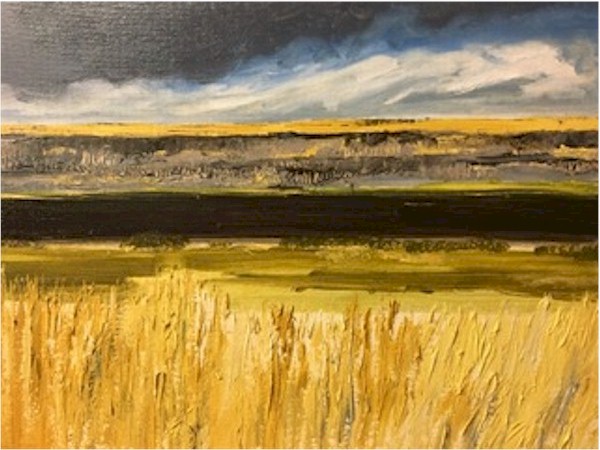
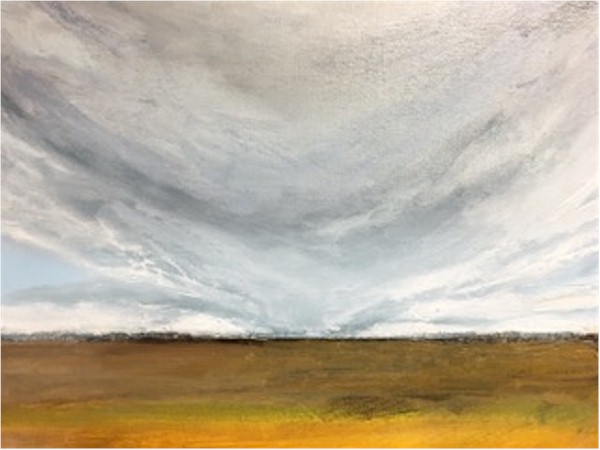
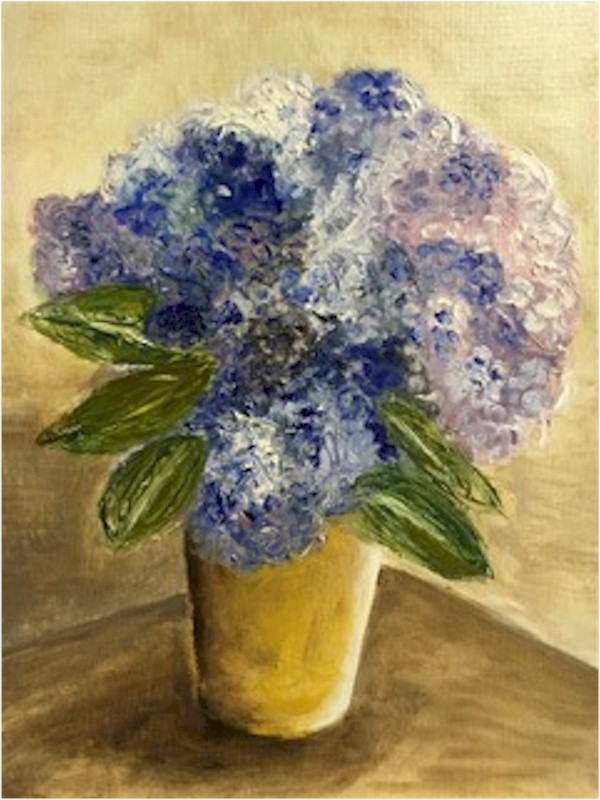
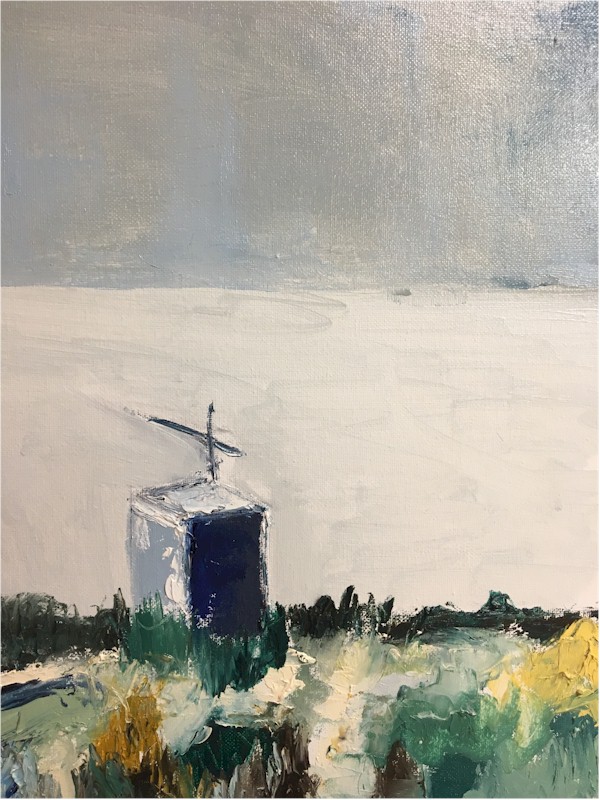

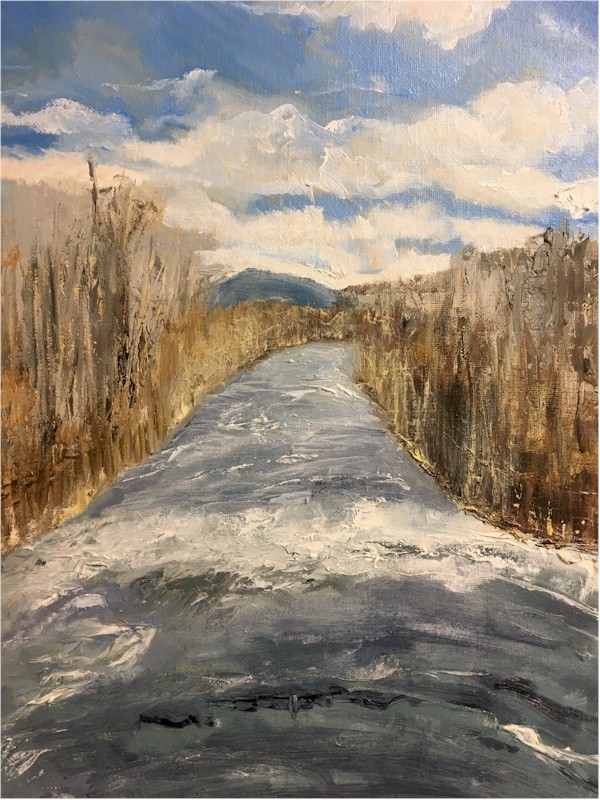






|
|
| Poetry |
Trilogy of Coping By Cabot O’Callaghan
Everything By Cabot O’Callaghan Son, how do I tell you everything? How do I show you how to be a man So much of our time is spent navigating How do I unpack the seduction and lies Because that’s the struggle of my lot, Damning are the tea leaves sprinkled on our sea
PUNK AS FUCK By Cabot O’Callaghan Go ahead, throw the world at me Don’t you know I was built for this? Even as it loads my heart heavy Don’t you know I was built for this? Submerge me and watch me emerge Don’t you know I was built for this? The buried unearth as thunder and fire Don’t you know I was meant for this? Don’t you know I grew thorns against its subjugation? Mother Dragonheart groomed me for this Don’t you know?
Writing is Not My Job By Cabot O’Callaghan Good Jobs, bad Jobs Jobs are a bottomless well of demands. In children we sow the seed: Jobs are loaded with expectation. Without one we despise you. Jobs are required but not guaranteed. Jobs are held holy, and wholly noble, but Jobs do not value people or futures. Is parenting a Job? Should it be? Why is teaching a Job? Why is healing a job? Jobs are the pistons of a machine that could not care less about humanity. Know this—my words will always be free. Know this—my words shall never live on their knees. |
|
|
| Fiction |
The Bus By Steve Carr Carl awoke gasping for breath. He clutched his chest but quickly realized the pain that had radiated from his heart to down his left arm was gone. He slowed his breathing, purposely inhaling and exhaling at a normal rate until he was doing it without thinking about it. Then he became aware of the large fans with bamboo blades whirring softly and rhythmically on the ceiling above him. At that moment he felt the coolness of the cement floor under his body. Carl sat up and looked around. He was in a busy bus station. The signs on the walls were all printed in Vietnamese. He glanced down at his naked body to his feet and saw Bao standing there. “Am I dead?” Carl said. Bao gave an enigmatic smile and adjusted the chin strap on his conical hat. “Your wife sent you a birthday cake,” Bao said, and Carl reached into a brown paper bag that suddenly appeared sitting on the floor at his side and pulled out a cake smothered in chocolate frosting with twenty-two burning candles. “Make a wish.” Carl closed his eyes but before he made a wish, he opened his eyes and saw that he was standing in a rice paddy. The water was up to the top of his Army boots. In the heat and humidity, rivulets of sweat ran down his spine and his uniform stuck to his skin. The M-16 in his arms was so heavy he had a hard time holding it up. In formation, the men of Company D who he had gone through boot camp with were marching by, sloshing through the bright green rice grass. “Ain't no sense in going home,” they sang in cadence. Perkins, Mott, Lawson and Adams turned their heads and looked at Carl. “Jody's got your girl and gone,” they sang. They faced forward and marched on, singing, “Your left, your right, now pick up your step.” Watching Company D disappear into the jungle, Carl dropped his rifle in the water and took off his helmet. He took a fork from his shirt pocket and dipped it into the helmet and lifted out a forkful of chocolate cake. He closed his eyes as he put the cake in his mouth. He opened his eyes to find himself standing beside a hospital bed that Bao was lying in. Bao was asleep. There was a large bandage on his upper right chest. On the other side of the bed, a young Vietnamese nurse in a crisp, white nurse's uniform and wearing a white nurse's cap was taking Bao's blood pressure. When she removed the cuff from his arm, she looked up at Carl and said, “Are you the American soldier who saved his life?” Avoiding the nurse's admiring gaze, Carl said, “Is he going to be okay?” She nodded. “He'll recover from the bullet wound and should live to an old age,” She brushed Bao’s hair back from his forehead. “We'll always be grateful for what you did but visiting hours are over.” “I didn’t get your name,” he said to the nurse. “Duyen.” Carl turned and stepped into the dark jungle. Ahead he heard Company D singing, “And it won't be long 'til I get back home.” ▀ ▀ ▀ Carrying a chocolate cake sitting on a glass platter with thirty candles stuck in the frosting, Chloe waded through the meadow of waving, sunburnt, yellow prairie grass. In the distance the light pink and purple layers of the rock formations of the Badlands glowed in the intense sunlight. Surrounded by prairie grass and sitting in a beach chair in dark blue swim trunks and holding a mai tai, Carl watched Chloe coming toward him. With his index finger he pushed at the maraschino cherry that floated on the top of the drink beneath a small, red, paper umbrella. The cherry sunk to the bottom of the glass and exploded, sending fragments of cherry and pieces of umbrella into the air as the mai tai vanished. “Get down!” a voice yelled from somewhere behind where Carl sat. Carl turned to see Perkins, Mott, Lawson and Adams running out of a grove of quaking aspens with M-16s in their arms. Their uniforms were torn and splattered with mud and blood. They vanished as they ran into a cloud of smoke. Carl turned back to see Chloe was now seated at the other end of an oak dining room table in front of him and smiling at him in a beguiling way. Her long blonde hair was being tousled by the breeze. On the table in front of him was the cake and a small, square, gift wrapped package with a red ribbon tied around it. He picked it up and turned it over several times. “Open it, darling,” Chloe said. He untied the ribbon and then tied it around his left wrist. He then removed the wrapping. The gift was a framed photograph of Bao and Duyen sitting on a white wicker sofa. Bao had his arm around Duyen. Both were smiling. “Thank you for the gift, sweetheart,” he said. “You're welcome. Now close your eyes and make a wish before you blow out the candles.” He closed his eyes. Instantly a voice said, “The bus is ready for boarding.” He opened his eyes. The bus station boarding platform was bustling with travelers. Four buses were lined up in a row, their doors open. Drivers stood in the doorway on the bottom step of each bus. The bus driver on the step in front of him had a handlebar mustache and ruddy cheeks. “That's a nasty scar on your cheek,” the driver said. “Where'd you get it?” “A bar fight,” Carl said. The driver shook his head sympathetically. “You getting on the bus or not?” “Where's the bus going?” Carl said. He shifted the duffle bag he held on his shoulder.
Carl sat the duffle bag down at his feet. He saw he was wearing brown leather cowboy boots. “This is all a dream, right?” Carl said. The driver twisted the end of one side of his mustache. “That depends on how you look at it, but you're going to miss this bus if you don't get on now.” “What do I do with my duffle bag?” Carl said. “Just leave it there. It'll get sent along.” The driver went up the bus steps and got behind the wheel. Carl stepped over the bag and onto the bus steps. He was enveloped in darkness as the door closed behind him. ▀ ▀ ▀ Riding atop a chestnut horse as it leapt out of a wall of dense smoke into a small, circular patch of muddy ground encircled by dipterocarp trees, Carl held onto the horse's reins with one hand and held his white Stetson from falling off his head with his other hand. When the horse's front hooves landed in the mud it splashed onto Carl's cowboy boots and brown leather chaps. Carl pulled back on the reins, stopping the horse in the middle of the mud patch. He patted the horse's neck. “Good boy, Thunder,” he said. Echoing from the surrounding jungle was Company D singing, “They say that in the Army, the chow is mighty fine. A biscuit fell off a table and killed a friend of mine. Oh Lord, I wanna go home.” Carl looped the reins around the saddle's horn and climbed down, stepping ankle deep in the soup-like mud. Perkins, Mott, Lawson and Adams ran out of the jungle. They stopped in a semi-circle around Carl. Adams, the youngest of them, freckled with bright red hair hidden beneath his helmet, said, “You shouldn't be here.” “I had no choice. I was drafted,” Carl said. “Incoming!” Mott, a sergeant and the highest ranking among them, yelled. Carl remained standing as the other men laid face down in the mud. A hand grenade landed at his feet and sunk in the mud. Expecting the grenade to explode, he closed his eyes. “Dad?” Carl opened his eyes. Standing in front of him on a porch that overlooked an open stretch of prairie was his teenage daughter. She was holding a cake with the number 40 written in white icing across the chocolate icing. There was a red ribbon tied around her wrist. “Lisa, where's Thunder?” Carl said. Lisa looked at him with confusion and concern. “Thunder died years ago, Dad, before I was born, while you were in Vietnam. Don't you remember?” He felt a lump in his throat. “I loved that horse,” he said. The screen door squeaked as it opened. Carl turned and watched Bao walk out. There was a large, wet blood stain on his upper right chest. Bao took a couple of steps, then collapsed on what was now bare dirt. Carl looked around at the burning huts that surrounded him. The men of Company D had gathered together the remaining villagers and were ushering them away from the fire. “Tôi là một nông dân,” Bao said. “Medic, this man's just a farmer,” Carl yelled as he bent down by Bao's side. A cloud of smoke blinded him as he put his hands on Bao's wound to stop the bleeding. ▀ ▀ ▀ Sitting in a beach chair, Carl wiped his eyes, and then opened them. In front of him the vastness of the ocean stretched out beneath bright sunlight. He lifted the sunglasses from his lap and put them on. Tides washed up onto the beach, pushing clumps of foam towards where Carl sat. He picked up his Army boots from the sand and placed them between his legs, and then brushed sand from his blue swim trunks. In a chair next to him, Chloe sipped on a mai tai through a red plastic straw. A maraschino cherry floated on the top of the drink beneath a red paper umbrella. Screeching seagulls circled and swooped in the sky above the beach. Looking up at the gulls, Chloe said, “I saw an eagle flying over the Badlands yesterday.” Carl glanced at the red, white and blue eagle tattoo on his forearm. His skin glistened with beads of sweat. “Am I dead?” She took a sip of the mai tai. “Not to me, you aren't. Why do you ask?” “I can't seem to wake up.” He looked over and saw that Chloe and her chair were gone. The mai tai was sitting in the sand. Next to the drink was a cake covered with chocolate frosting. A wax candle in the shape of the number 50 stood on the top of the cake. He turned back to the ocean. A white bus drove out of the water and onto the beach. It came to stop a few feet away from him. Its door opened. The driver with the handlebar mustache walked down the bus steps and stopped on the bottom step. After twisting the ends of his mustache, he said, “So, this is where you went to.” “I had to get off the bus. I didn't know where it was going.” “Few people ever do with any certainty,” the driver said. “Are you ready now?” Carl looked down the beach and saw two people in the distance walking toward him. He put his hand over his eyes to block the glare from the sunlight. “That's Bao and Duyen.” He turned and saw that the bus was gone. He put on the glasses and his boots, and then ran to the couple. “Have you seen Chloe?” “She was sitting at the bar at the hotel having mai tais,” Bao said. “Are you enjoying your return to my country?” “It's changed since the last time I was here.” He looked toward a tall hotel that suddenly appeared at the end of the beach. Blinding sunlight reflected from its white paint and blue tinted windows. The sunglasses did nothing to block the intense light. He closed his eyes. ▀ ▀ ▀ With Lisa leaning against him, Carl opened his eyes and saw that he stood at the head of the long picnic table. Seated around it were Lisa's husband, Frank, his twin cousins and their wives, Tom, the bartender from the saloon in Scenic, the mailman, Earl, his two ranch hands, Glenn and Sean, Bao and Duyen, Perkins, Mott, Lawson and Adams and their wives, and at the other end of the table, Chloe. He raised his mai tai and said, “Cheers.”
Everyone else did the same thing. Each person had a red ribbon tied around their wrist. Following Carl's lead, they pushed aside their red paper umbrellas and took a sip. Carl lowered his mai tai and looked out at the prairie that surrounded the rock formation that they were on the top of. A small herd of buffalo was moving slowly through a dry stream bed. An eagle soared in the sky above the formation. “We made you fifty-five chocolate birthday cupcakes, Dad,” Lisa said. Carl glanced at the cupcakes, each one with a burning candle stuck in it, following the lined rows of cupcakes on the picnic table to where Chloe was sitting. Ben Mason, his best friend from high school, was standing behind her, his arms around her and kissing her neck. She was laughing. Instantly, Carl found himself in an open field and carrying Bao on his back. His uniform was stained with Bao's blood. A chopper was ahead, its blades whirling noisily. Bloodied and muddied, Company D was marching at a double step around the chopper singing, “Jody's got your girl and gone. One, two, three, four.” The chopper and Company D disappeared, replaced by Thunder who had wings, like Pegasus. Carl placed Bao on Thunder's back, put his cowboy boot in a stirrup, and then climbed on behind him. Thunder lifted from the ground and flew through the sky. Carl looked down at the prairie bathed in sunlight. His ranch sat amidst a sea of grass. A herd of buffalo were crossing the northern border of the ranch, headed toward the Badlands. “That land is heaven on Earth,” he said. As the gentle wind bathed his face, he closed his eyes. ▀ ▀ ▀ He opened them. The bamboo blades of the ceiling fans churned the cigarette smoke-filled air. The bar was crowded with Vietnamese locals, American ex-pats, tourists, and American military veterans. Their combined voices created a cacophonous din. Carl, Bao, Perkins, Mott, Lawson and Adams sat around a square, rickety table. In the middle of the table was a chocolate sheet cake with “Happy Sixtieth” written on it with blue icing. “You would have been left to die if it weren't for Carl,” Perkins, gray bearded with a large stomach, said as he raised a mai tai to his lips. “I know,” Bao said. Lawson, bald and thin, said, “Carl, do you remember the first time we were here? It was right after we returned from the jungle and you just found out that Chloe had cheated on you. You drank so many mai tais we had to carry you out of here.” Carl turned to see Thunder coming through the door. The horse stopped, whinnied, and then turned and walked out. Carl ached with longing. “That was the greatest horse I ever had,” he said. He closed his eyes as they filled with tears. ▀ ▀ ▀ He felt the burning, white sand sink beneath the weight of his Army boots and opened his eyes. Company D was marching down the beach, singing, “Tiny bubbles in my wine, make me feel happy, make feel fine. Your left, your right, your left, right, left.” Carl stopped and laid his M-16 in the sand, and then stripped off his clothes. He looked up as an eagle crossed the sky, casting its shadow on the beach. He walked to the entrance of the hotel bar, stepped over his duffle bag that lay in the threshold, and then looked around. Chloe was in a pale blue house dress with her hair in curlers and sitting at the bar. She had a mai tai in her hand. A naked man with greasy blonde hair was sitting on a bar stool very close to her and also holding a mai tai. Carl rushed over and yanked the man from the stool. “Leave my wife alone,” he snarled at the man who laid on the floor with a broken mai tai glass in his hand. “Carl, have you lost your mind?” Chloe said. “You're not going to cheat on me again,” he said. “That was years ago, Carl. Aren't you ever going to forgive me?” The man leapt up from the floor and slashed Carl down his left cheek with a jagged piece of glass. Carl fell backwards and hit his head on a corner of the bar. Before he opened his eyes the scents of the prairie, earth and grass, filled his nostrils. His eyes open, he stared up at large cotton-like balls of clouds slowly drifting across the baby blue sky. On all sides of him, prairie dogs dodged in and out of their burrows, chirping and barking excitedly. A meadowlark perched on a nearby post warbled its brief aria. He felt the warmth of the sun warming his cheeks. He raised his forearm and wiped sweat from the eagle tattoo. He untied the red ribbon from around his wrist and held it out to let the breeze catch it and watched as it floated away. ▀ ▀ ▀ The chopper blades slashed the hot late afternoon air as Company D climbed into the choppers, carrying their wounded and dead with them. Smoke formed a dark cloud above the burning village.
Bao and Duyen sat on a white wicker chair in the rice paddy, his arm around her shoulders. His hair was nearly white. Her hair was streaked with gray and arranged in a bun on the top of her head. “My husband has something he wants to tell you,” Duyen said. Standing in front of them, his cowboy boots ankle deep in water, Carl looked at Bao, who had his head bowed. “What is it?” Bao looked up. “I was a Vietcong. I was hiding in that village.” “If I had even suspected it, I would have killed you,” Carl said. “Instead, we have been friends all these years.” He took Duyen's hand in his. “Thanks to you I met my wife who I love more than anything else on Earth.” Smoke blew into Carl's face. He closed his eyes. “Happy birthday to you. Happy birthday to you,” was being sung as he slowly opened them. Chloe was standing in front of him on the front porch. She had a chocolate cake on a silver platter in her hands. There was one large candle in the middle of the thick frosting; its wick was burning. The blonde in her hair had faded to the color of dull yellow and it was cut short. There were small wrinkles around the corners of her lips and at the sides of her eyes. “Happy sixty-fifth birthday,” she said. “Why did you cheat on me?” he said. “Are you going to go to your grave not forgiving me for that?” She threw the cake over the porch railing. An eagle swooped down and caught it in its talons and carried it away. The movement of a small herd of buffalo walking through short, brown, dead prairie grass near the Badlands formations caught his eye. “I forgive you,” he said, still watching the buffalo. “I love you.” He turned his head to see that Chloe was gone. ▀ ▀ ▀ A sudden pain shot from his chest down his left arm. He clutched his chest and closed his eyes. When he opened his eyes, he was naked and lying on a cold, cement floor. Hearing many voices around him he raised his head and looked around. There were buses lined up at a boarding platform. Lines of people of all ages, races and nationalities were standing at the open doors of the buses. His duffle bag was lying at his side. He looked down at his feet. The bus driver with the handlebar mustache stood there rubbing the ends of his mustache. “I'm dead, aren't I?” Carl said. “Dead seems like such a final way of saying it,” the bus driver said. Carl sat up. “Can you tell me what has been happening to me since I got here?” “You've been jumping around in the dreams of those who remember you and having some final memories of your own while you wait to catch the bus to take the trip to the great beyond.”
“Everyone catches a bus in the end,” the driver said. “This is just the station where you wait until you're ready to get on one. If you are, we'd prefer you stay on. Getting on and off a bus is frowned upon.” “What do I do with my duffle bag?” Carl said. “It'll get sent along,” the driver said. Carl stood up. “Will I still be in other people's dreams?” “For as long as the memory of you lives on.” “I wish I could do it all over again,” Carl said. The driver twisted the ends of his mustache. “In your memories, you always will.” “I'm ready to get on the bus.” |
|
|
| Poetry |
Lenses: 1 & Insofar By Benjamin Pierce
Lenses: 1 By Benjamin Pierce I grind a plane of hard translucence
Insofar By Benjamin Pierce There was nothing to do but assault the distance. |
|
|
| Creative Nonfiction Vignette |
Slice of Life: Merry Christmas, Kids By Jamie Owens
I was too young then to understand all that he was feeling, but I do now. Gram had been living with us a couple of years and the hurts were building up. Dad became more broken with every passing day. Instead of pocketing the gum and laughing it off, he should have walked out right then or better yet, he should have thrown her out. He hesitated because he thought that our Gram was providing care for us kids, although he never actually asked to find out. One Christmas night I could hear Dad and Mom yelling as usual; but this conflict was steeped in emotion and not about the usual nuts and bolts of running a household. He wanted to be free of his mother-in-law, not only because he knew she was a bad influence on us kids, but also because he found out that Gram wasn’t actually around all that much, leaving us alone most of the time. This Christmas fight became particularly ugly, rehashing past hurts, disappointments, squashed dreams and lack of money. For us, it was always money. Mom worked, Dad worked two jobs, still there wasn’t enough. The entire time Gram lived with us, she didn’t contribute one penny to the household that supported her -- not with money, or kindness, or love. She was a first-class sucker fish. She spent all the money she earned partying at clubs and buying fancy clothes and jewelry. She was a member of an organization that met regularly for charity and altruism, but the women would dress up in their finery to show how cool and well-off they were. Those meetings were really all about gossip and money. They were about good (but phony) impressions with nothing based in reality. My Gram slurped us dry and when there was no more for us to give her and our family was confetti, it turned into a “he said, she said” fight, and she moved on. |
|
|
|||||||||
| From the Editor's Desk | |||||||||
Spotlight On: Climate Change Humanity is nearing a precipice. Human beings have wiped out 60% of mammals, birds, fish and reptiles since 1970; world experts warn that the sixth mass extinction of life on Earth is underway. – World Wildlife Federation, 2019 Humans Healing Nature Climate change and the effects of global warming are complex issues. While there are no easy solutions, nature can help and support us through this crisis and give us time to transition to a different way of living our lives: but only if we begin to protect and respect nature and the environment. In this way we might survive as a species. First, we must combat the devastating effects of the excessive amounts of carbon dioxide we release into the atmosphere. The good news is that trees and plants not only suck carbon dioxide from the air as they grow but they also provide vital habitats for animals. The restoration of natural forests and coasts can simultaneously tackle climate change and the annihilation of wildlife while enhancing local people’s resilience against climate disaster. Planet-wide campaigns to save the earth exhort us to “ let nature heal climate and biodiversity crises ” because defending the living world and defending the climate are, in many cases, one and the same. In March 2019, “a decade of ecosystem restoration” announced by the United Nations Environment Program confirmed that “the degradation of our ecosystems has had a devastating impact on both living things and the environment and that nature is the best recourse if we are to tackle climate change and secure the future.” Defending, restoring and re-establishing forests, peatlands, mangroves, salt marshes, natural seabeds, and other crucial ecosystems will remove and store large amounts of carbon from the air. According to Carbon Brief, “The greatest environmental impact is likely to come from the restoration of forests, particularly areas in the tropics that were razed for cattle ranching, palm oil plantations and timber. (2018) Forest mitigation measures include avoiding 1) deforestation and forest conversion, 2) improving fire management with controlled burns and other measures intended to avoid severe fires and 3) improving cookstoves to reduce the harvest of wood fuel used for cooking and heating.
I am the Lorax. I speak for the trees. I speak for the trees for the trees have no tongues. Grassland mitigation measures include avoiding the conversion of grasslands into cropland thus avoiding nitrous oxide emissions from agricultural fertilizers, fossil fuel combustion and industrial processes. Reducing methane emissions could be accomplished by changing the diets fed to cows and improving livestock breeds and management techniques to reduce the total number of animals needed to supply the same level of meat and milk demand. Mitigating effects from wetlands is a global challenge because they are incredibly diverse ecosystems. Wetlands occur as peaty deposits and as seasonal floodplains from the tropics to the Arctic. Some are dominated by mosses, others by rushes or trees where conditions allow. As their name suggests, wetlands maintain a high-water table for significant parts of the year. This near-constant saturation reduces the amount of oxygen that diffuses into sediments and soils, which in turn slows the decomposition of organic matter and allows peat to form. Wetland mitigation measures include 1) improved rice cultivation techniques to reduce methane emissions, 2) restoring peatlands and 3) avoiding additional destruction of coastal wetlands or peatlands. Effective ways of restoring habitats often overlap with the conservation of wildlife. Many large tropical trees with sizeable contributions to carbon stock rely on large vertebrates for seed dispersal and regeneration, however many of these frugivores are threatened by hunting, illegal trade, and habitat loss. Boosting the populations of forest elephants and rhinos in Africa and Asia, for example would help spread the seeds of trees that have a high carbon content; and, more gray wolves in both grassland and boreal ecosystems, could lead to an increase in net ecosystem productivity because fewer plants would be eaten by the wolf-reduced moose populations. (US National Academy of Sciences) The fastest accumulation of carbon occurs in vegetated coastal habitats such as mangroves, saltmarshes and seagrass beds (which also protect communities from storms). In these habitats, carbon can be sequestered 40 times faster than in tropical forests. Peatlands must also be protected and restored, as they store one third of all soil carbon despite covering just three percent of the world’s land. (Natural Climate Solutions) So, how many trees do we need to plant if we want to consistently reduce the carbon dioxide levels from the atmosphere? We need to plant at least 1 trillion of them.
While it will take decades for these newly planted trees to reach maturity, they could, upon maturity, store 205 billion metric tons of carbon. This is two-thirds of the 300 billion metric tons of carbon that humans have released into the atmosphere since the Industrial Revolution. In the meantime, we must protect the currently existing forests, pursue other climate solutions and continue to phase out fossil fuels from our economies. How many trees we plant will also be determined by how quickly we transition to a low carbon economy. Around 2.2 billion acres of land worldwide would be suitable for reforestation, which could ultimately capture two thirds of human-made carbon emissions. Crowther Lab of ETH Zurich has shown that this can be a powerful tool for drawing carbon from the atmosphere. Humanity is nearing the precipice. Trees can stop us from going over the edge. They can throw us a lifeline, it’s up to us to catch it. Failing to do so will lead us into a ravine, with no possible escape. Nature Healing Humans Look deep into nature, and then you will understand everything better. – Albert Einstein The greatest gifts from nature come as no surprise. For most of us, spending time in nature is emotionally and spiritually healing. It allows us to rejuvenate and re-align ourselves with what really matters in life. Do you remember the last time you had a truly spiritual experience in nature? Perhaps you were hiking to the top of a mountain or kayaking along the glass-like surface of a lake? Perhaps it was just barely after sunrise and an expansive feeling came over you? Did you suddenly feel connected to something much bigger and older than yourself, perhaps even to the essence of life itself? Sometimes when we are in nature, a peaceful calm comes over us and we know that everything is as it should be. Research tells us that adults who spend time in nature have lower levels of the stress hormone cortisol than those who stay indoors. This reduction of stress leads to better sleep, balanced mental health and physical well-being. Time spent outside engaged in physical activities such as walking or hiking, gardening or biking can reduce the risk of heart disease, increase metabolism, and ultimately effectively lower body mass index. By setting an intention to connect with nature, we can create the conditions for the possibility of deep healing. Relaxing fully and being mindful of the beauty that surrounds us can provide true regeneration.
By being alone in nature and choosing to be silent with ourselves, we can be present to all that surrounds us. To become fully present, we just need to focus our attention on two sensory inputs at the same time. We intentionally notice what we’re hearing at the same time that we are focusing on a tree or cloud in front of us. Or we breathe deeply and notice how it smells at the same time as we are discovering the texture of something through touch. Keeping our concentration on two sensory inputs for as long as possible, we can find ourselves instantly present with no other thoughts to distract us. To become grounded in the moment, we can set aside stressful thoughts, and allow ourselves to relax into the idea that we are okay right now in this moment. In this grounded moment of contemplative time in nature, we may experience flashes of intense clarity and joy. During our busy work-a-day, distracted lives, it is difficult to experience life affirming insights. Without taking time to be still and contemplate our lives, we could find ourselves spending years working unrewarding jobs, staying in relationships that are not life enhancing, and not even realize the exhausting pace and distractions of our lives. But a spiritual experience in the wild changes all this in an instant when we realize that we have been asleep in our lives and missing out on so much that is possible, beautiful, and liberating. If we each go receptively into nature, we can heal ourselves and maybe even each other. For more information on climate change and global warming, explore these references:
|
|
|
| Poetry |
Forest Dweller By Dawn Tyree
it's not that I'm lonely here the trees greet me earthy soil springs me to life it's not that I'm lonely here my friends near I am a forest dweller
|
|
|
| CONTRIBUTORS |
| 2020 |
Steven Carr Beth Cartino Kirk deFord Marta Kalinska Basha Krasnoff Cabot O’Callaghan Jamie Owens Benjamin Pierce Richard Prime Prisoner # 53.3.8.5.7 Judith Skillman Ann Christine Tabaka Dawn Tyree |
|
|
| SUBMISSIONS |
| 2020 |
Buoyed by the thriving literary community of Portland, Oregon, we reach out to the global community to inspire, encourage and broadcast creative expression. Wherever you are on planet Earth, we welcome you to share your vision, your voice, and your point of view! The Portland Metrozine is published quarterly (Spring, Summer, Fall, and Winter), but submissions are accepted at any time. We accept simultaneous submissions but please let us know if your work is accepted elsewhere. We will consider previously published work with a citation for the original publisher and date. You can learn more about our community via Facebook and Duotrope. Submission GuidelinesSend an email message to the Editor at: 1. In the body of your email, please include: ■ Title of your submission 2. For document files, use MS Word (.doc, or .docx), or ASCII text (.txt). Attach your document and/or image file(s) according to these guidelines: Fiction: 1 story per submission (max: 4K words) ■ double-spaced manuscript ■ one-inch margins ■ paginated Creative Non-fiction: 1 essay per submission (max: 4K words) ■ double-spaced manuscript ■ one-inch margins ■ paginated Flash Fiction / Flash Non-fiction: 1-4 pieces per submission (max: 1K words each) ■ double-spaced manuscript ■ one-inch margins ■ paginated Poetry: 1-5 poems per submission (max: 50 single-spaced lines each). Use Adobe Acrobat (.pdf) file for fixed poetry layouts. Images: 1-6 images per submission (max width: 1200 pixels each) Use .jpg , .gif, .png, or .mic file formats.
|
|
|
| KUDOS Gallery |
| Winter 2020 |

